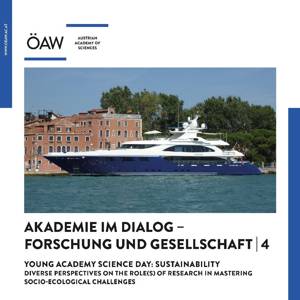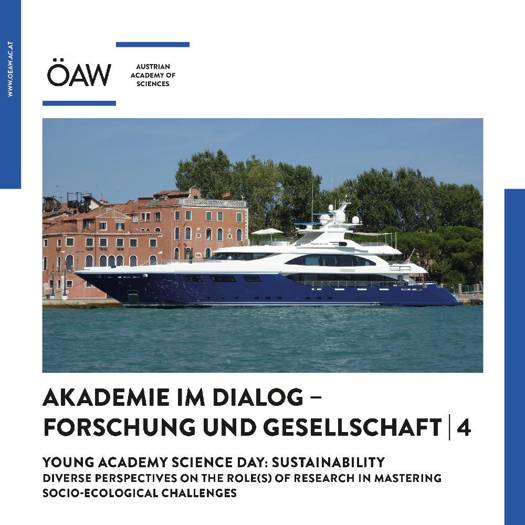
- Afhalen na 1 uur in een winkel met voorraad
- Gratis thuislevering in België vanaf € 30
- Ruim aanbod met 7 miljoen producten
- Afhalen na 1 uur in een winkel met voorraad
- Gratis thuislevering in België vanaf € 30
- Ruim aanbod met 7 miljoen producten
Zoeken
Young Academy Science Day
Sustainability: Diverse Perspectives on the Role(s) of Research in Mastering Socio-Ecological Challenges
Austrian Academy of Sciences Press
€ 18,95
+ 37 punten
Omschrijving
This publication presents the proceedings of the OeAW Young Academy's Science Day on sustainability. Humanity faces a multiple sustainability crisis: global resource consumption has reached a level transgressing several planetary boundaries (including, e.g., climate change and biodiversity loss), while at the same time major societal challenges prevail, including ending hunger, reducing poverty, ensuring equal rights and sustaining world peace. Across disciplines, research addresses diverse and interconnected sustainability challenges, departing from diverging starting points and developing a plethora of theoretical and methodological approaches, problem diagnoses, and potential solutions. Despite having become a topic of public interest in recent, crucial evidence from sustainability research still does not feed sufficiently into political and economic decision-making to achieve ecological and societal sustainability goals. In view of these considerations, and as groundwork for advancing its sustainability agenda, the Young Academy solicited positions from its members and selected guests in order to determine the bandwidth of approaches. Three questions were asked: 1) What characterizes the current sustainability crisis? 2) How would societies need to change to attain a transformation toward sustainability? 3) How can research contribute to mastering this challenge? Thus, what you are holding in your hands is a preliminary output of this exchange, a collection of inputs, and by no means a treatise on sustainability. If anything, it demonstrates that sustainability can, and must, be conceived as a multidimensional challenge affecting ecological, socio-economic and cultural processes.
Specificaties
Betrokkenen
- Auteur(s):
- Uitgeverij:
Inhoud
- Aantal bladzijden:
- 52
- Taal:
- Engels
- Reeks:
- Reeksnummer:
- nr. 4
Eigenschappen
- Productcode (EAN):
- 9783700195146
- Verschijningsdatum:
- 15/11/2023
- Uitvoering:
- Paperback
- Formaat:
- Trade paperback (VS)
- Afmetingen:
- 210 mm x 6 mm
- Gewicht:
- 190 g

Alleen bij Standaard Boekhandel
+ 37 punten op je klantenkaart van Standaard Boekhandel
Beoordelingen
We publiceren alleen reviews die voldoen aan de voorwaarden voor reviews. Bekijk onze voorwaarden voor reviews.








